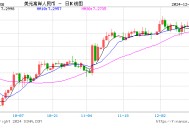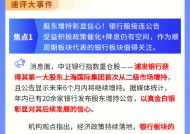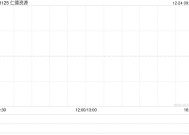健康饮食 就是这么简单
- 资讯
- 2024-12-24 03:52:36
- 1
Over the past few months, I’ve written a number of times on how nutrition recommendations are seldom supported by science. I’ve argued that what many people are telling you may be inaccurate. In response, many of you have asked me what nutrition recommendations should say.
在过去几个月里,我多次在文章中提到,营养建议很少得到科学支持。我的看法是,很多人对你们说的事情可能并不准确。对此,很多人问我有什么营养建议。
It’s much easier, unfortunately, to tell you what not to do. But here at The Upshot, we don’t avoid the hard questions. So I’m going to put myself on the line. Below are the general rules I live by. They’re the ones I share with patients, with friends and with family. They’re the ones I support as a pediatrician and a health services researcher. But I acknowledge up front that they may apply only to healthy people without metabolic disorders (me, for instance, as far as I know).
不幸的是,给出不建议的东西,要比给出建议容易的多。但在“结语”专栏(The Upshot),我们不回避难题。所以我来斗胆回答一下。以下是我的一般守则。我会把这些守则分享给病患、朋友和家人,作为一个儿科医生和卫生服务研究人员,它们是我能够认可的。不过,我要预先承认,这些守则只适用于没有代谢障碍的健康人士(比如以我目前所知,我就算是一个)。
These suggestions are also not supported by the scientific weight of rigorous randomized controlled trials, because little in nutrition is. I’ve inserted links to back them up with the available evidence. They are not “laws” and should not be treated as such. No specific nutrients will be demonized, and none will be held up as miracles. But these recommendations make sense to me, and they’ve helped me immensely.
这些建议同样也没有通过严格的随机对照试验进行科学评估,因为营养学领域很少有这样的试验。我插入了链接,用现有证据来支持这些建议。这些建议不是“规范”,不应该被当成规范来执行。我不会把具体某个营养物妖魔化,也不会奉某个营养物为人间奇迹。但是我觉得这些建议是有道理的,而且对我帮助极大。
Full disclosure: I did not invent most of these. I’ve developed them from reading the work of others, including what may be the most impressive “official” nutritional guidelines, those of Brazil, as well as from earlier suggestions from readers, as in this great NYT interactive graphic. It captures readers’ responses to food rules by Michael Pollan. He is, of course, the promulgator of the well-known advice: “Eat food. Not too much. Mostly plants.”
需要声明:这些建议大多都不是我提出的,而是我通过阅读别人的作品得出的,包括一些格外出色的“官方”营养指南,巴西提出的那些,还有较早前读者提出的建议,比如时报的这份精彩的互动图文里列出的。这些是读者对迈克尔·波伦(Michael Pollan)提出的食物守则的回应。而波伦就无需多说了,他推广了一个著名的建议:“进食。不要太多。植物为主。”
1. Get as much of your nutrition as possible from a variety of completely uNPRocessed foods. These include fruits and vegetables. But they also include meat, fish, poultry and eggs that haven’t been processed. In other words, when buying food at the market, focus on things that have not been been cooked, prepared or altered in any way. Brown rice over white rice. Whole grains over refined grains. You’re far better off eating two apples than drinking the same 27 grams of sugar in an eight-ounce glass of apple juice.
1. 尽可能从各类完全未经加工的食物中获取营养。这些食物包括水果和蔬菜,也包括未经处理的肉、鱼、禽和蛋。换句话说,在市场里购买食物时,要注意选择尚未烹调、制备或以任何方式改变过的。糙米代替白米,全谷物代替精加工谷物。同样是摄入27克糖,吃两个苹果要比喝一杯8盎司的苹果汁好太多。
1b. Eat lightly processed foods less often. You’re not going to make everything yourself. Pasta, for instance, is going to be bought already prepared. You’re not going to grind your own flour or extract your own oil. These are meant to be eaten along with uNPRocessed foods, but try to eat less of them.
1b. 少吃轻加工食品。不可能所有食物都自己做。比如意大利面会去买已经做好的。你不会自己磨面粉或提炼食油。这意味着要同时进食轻加工食物与未经加工食物,但要尽量少吃。
1c. Eat heavily processed foods even less often. There’s little high-quality evidence that even the most processed foods are dangerous. But keep your consumption of them to a minimum, because they can make it too easy to stuff in calories. Such foods include bread, chips, cookies and cereals. In epidemiologic studies, heavily processed meats are often associated with worse health outcomes, but that evidence should be taken with a grain of salt (not literally), as I’ve written about before.
1c. 更要少吃重度加工食品。即便是最重度加工的食品,也很少有高质量的证据能够证实它是危险的。但是你要尽量少吃这些食物,因为它们容易含高热量。这类食物包括面包、薯片、饼干和谷物。流行病学研究发现,重度加工过的肉类往往与健康状况恶化有关,但正如我之前所写,该证据不能尽信。
2. Eat as much home-cooked food as possible, which should be prepared according to Rule 1. Eating at home allows you to avoid processed ingredients more easily. It allows you full control over what you eat, and allows you to choose the flavors you prefer. You’re much less likely to stuff yourself silly if you eat home-cooked food. I’m not saying this is easy. Behavioral change takes repetition and practice. It also, unfortunately, takes time.
2. 尽量在家吃,烹饪料理也应遵循守则1。在家里吃饭能让你更容易避开加工食材,全权控制自己所吃的东西,选择自己喜欢的口味。如果是吃自家制食物,你就不会那么稀里糊涂地填饱肚子。我知道这做起来并不容易。改变行为需要重复和实践。不幸的是还需要很多时间。
3. Use salt and fats, including butter and oil, as needed in food preparation. Things like salt and fat aren’t the enemy. They are often necessary in the preparation of tasty, satisfying food. The key here is moderation. Use what you need. Seasoning is often what makes vegetables taste good. Don’t be afraid of them, but don’t go crazy with them either.
3. 烹调过程中按需使用盐和油脂(包括黄油和油)。盐和油脂这类调味料并不是敌人。在烹调美味而令人满足的食品过程中,它们往往是必要的。其中的关键是适度。蔬菜往往是通过调味才变得好吃的。不要惧怕它们,但也不要过度使用。
4. When you do eat out, try to eat at restaurants that follow the same rules. Ideally, you should eat at restaurants that are creating all of their items from completely uNPRocessed foods. Lots and lots of restaurants do. Follow Rule 1 even while out to dinner. Some processing is going to be fine, but try to keep it to a minimum.
4. 在外面吃饭时,尽量到遵守这些规则的餐厅用餐。在理想的情况下,你应该在只使用未经加工的食材的餐厅吃饭。许多餐厅都符合此条件。即使是出外吃晚餐,亦应该遵从守则1。吃一些加工食材没有什么问题,可还是尽量少吃为妙。
5. Drink mostly water, but some alcohol, coffee and other beverages are fine. As I’ve pointed out before, you can find a study to show that everything either prevents or causes cancer — alcohol and coffee included. But my take is that the preponderance of evidence supports the inclusion of a moderate consumption of most beverages.
5. 以喝水为主,但偶尔喝一些酒、咖啡或其他饮料亦可。正如我之前所说,任何东西都能找到某个研究证明它要么有助预防癌症要么导致癌症——酒和咖啡亦包括在内。但我的观点是,多数证据支持大部分饮料可适度饮用。
6. Treat all beverages with calories in them as you would alcohol. This includes every drink with calories, including milk. They’re fine in moderation, but keep them to a minimum. You can have them because you like them, but you shouldn’t consume them as if you need them.
6. 像对待酒精一样对待所有含热量的饮料。这包括了所有含热量的饮料,牛奶也在此列。它们可以适度饮用,但应保持在最低限度。你可以因为喜欢所以饮用,但不应该把它们当作必须摄入的东西。
7. Eat with other people, especially people you care about, as often as possible. This has benefits even outside those of nutrition. It will make you more likely to cook. It will most likely make you eat more slowly. It will also make you happy.
7. 和其他人一起吃饭,特别是你关心的人,而且次数越频密越好。这甚至有营养以外的益处。这会让你有更多下厨房的机会,很可能令你吃饭吃得更慢。这能让你快乐。
I’ve avoided treating any food like the devil. Many nutrition experts do, and it may turn out they’re right, but at this point I think the jury is still out. I’ve therefore tried not to tell you to avoid anything completely. My experience tells me that total abstinence rarely works, although anecdotes exist to support that practice. I think you’ll find that many other diets and recommendations work under these rules. These are much more flexible and, I hope, reasonable than what some might prescribe.
我一向避免视任何饮食如魔鬼。很多营养专家这样做,而人们最终可能会发现他们是对的,但目前我觉得还没有盖棺定论。因此,我一直尽量不说你应该完全避开某个东西。尽管现时传闻支持相反做法,但经验告诉我,彻底戒绝很少是有效的。我想你会发现,有很多其他饮食和建议都适用于这些规则之下。它们更具灵活性,我希望相比有些人开出的方法,它们会是更加合理的。
All of these rules are subtly trying to get you to be more conscious of what you’re eating. It’s far too easy these days to consume more than you think you are, or more than you really need, especially when eating out. I’ve found that it’s impossible to tell any one person how much they should be eating. People have varying requirements, and it’s important for all of them to listen to their bodies to know when they should eat, and when they should stop.
所有这些规则都透过微妙的方式,试图让你对自己所吃的东西有更多的意识。现如今,你很容易就会摄取超过自己所想、或是自己所需的分量,出外用餐时情况更尤为严重。我发现,要告诉任何一个人该吃多少食物都是不可能的。人们均有不同的需求,而重要的是所有人都该听从自己的身体,从而了解何时进食,何时停止。
One other thing: Don’t judge what others eat. One of my closest friends has been avoiding carbohydrates for months, and has seen remarkable results. Another was a pescatarian — a person whose only meat dishes are fish — for a year and was very happy with that. I, on the other hand, avoid no food groups in particular.
还有一件事:不要妄论他人的饮食。我的一个好朋友已经连续数月不沾碳水化合物,效果非常好。还有一个坚持鱼素食——只接受鱼肉这一种肉食——已经有一年,感觉良好。而我呢,不避食任何食物种类。
People are very different. Some may have real problems consuming even the smallest amount of carbohydrates. Others may be intolerant of certain foods because of allergies or sensitivities. It will most likely take a bit of experimentation, on an individual level, to find the actual diet within these recommendations that works for you. But the above rules should allow for a wide variety of foods and for remaining healthy. At least, I hope so.
每个人都是不同的。有的哪怕只是摄入一丁点碳水化合物都会有麻烦。有的由于过敏或敏感而不能接受某种食物。每个人往往都需要自己去实验,在这些建议中找到适合自己的膳食。不过,以上的守则是包容各种食物的,并且是用于保持健康的。至少我是这样希望的。
I’m curious what readers think of these. I welcome your comments to this column, as well as tweets to me in response.
我对读者的想法很好奇。欢迎你们评论这篇专栏,也可以发推给我。











有话要说...